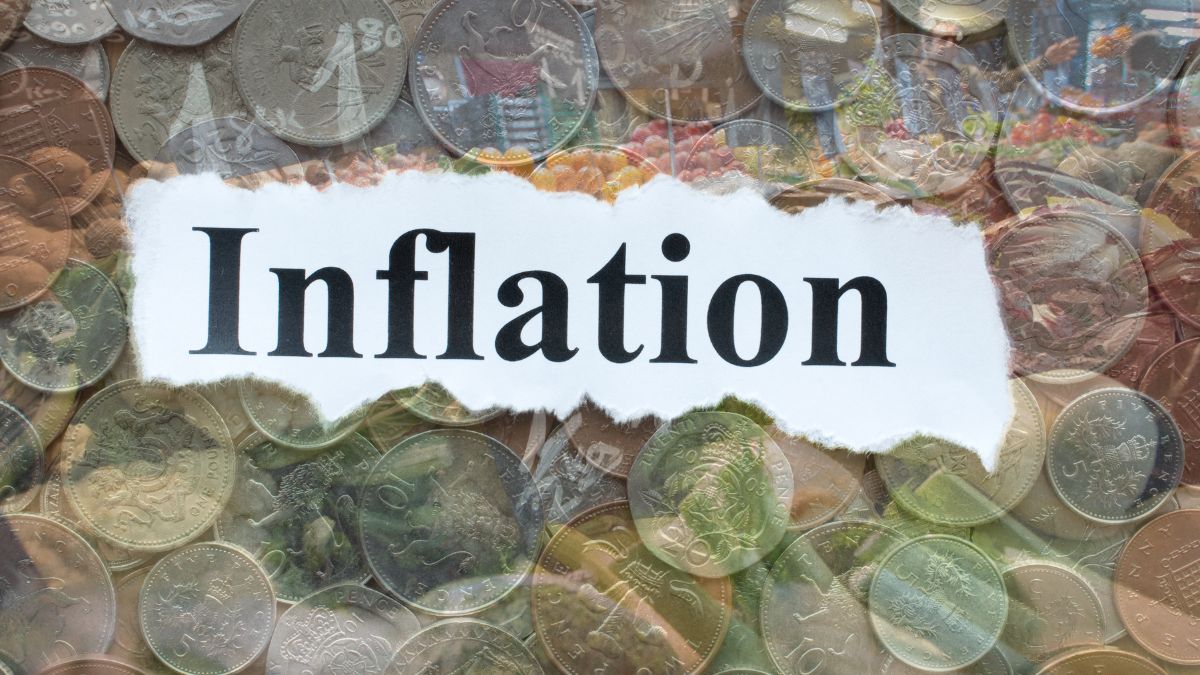
Retail inflation plunges to 8-year low of 1.54%
October 13, 2025
The headline inflation, measured by consumer price index, dropped below the RBI's 2%-6% tolerance band for a second time in three months. It had eased below 2% in July too (1.61%).
Retail inflation eased to an eight-year low of 1.54% in September, owing to a favourable base and an annual decline in prices of vegetables, pulses, cereals and fuels, the National Statistics Office (NSO) said on Monday. The inflation rate falling even below the lower end of the Reserve Bank of India (RBI)’s tolerance band of 2% justified its October 1 decision after the latest monetary policy review to keep the repo rate unchanged at 5.5%.
September inflation is the lowest since June 2017, when it stood at 1.46%; that is, the latest print is a 99-month low. In August 2025, the inflation stood at 2.07%.
With the latest figure inflation for Q2FY26 averaged 1.7%, as against the RBI’s projection of 1.8%. The RBI lowered its inflation projection for 2025-26 to 2.6% from 3.1% estimated in August.
Core inflation, however, inched up to 4.43%, primarily due to a sharp spike in precious metal prices. Higher gold prices and housing costs pushed up core inflation. CareEdge Chief Economist Rajani Sinha noted excluding precious metals, core inflation remained benign at 3%.
India Ratings’ Paras Jasrai expects retail inflation in October 2025 to be around 1%, a new low in the 2011-12 series due to the favorable base, continuing decline in prices of vegetables and impact of Goods and Services Tax (GST) rates rationalisation.
Food inflation has remained in the negative territory for the fourth month in a row in September, the month when the deflation intensified. Consumer food price index fell 2.28% on year in September, upon a high base (9.24%), while in August the index declined 0.64% on year.
“Looking ahead, food inflation is likely to stay benign supported by a favourable base and good monsoon. That said, risks remain from the late withdrawal of the monsoon and heavy rains in certain regions, which could risk crop damage,” Sinha said.
The headline inflation, measured by consumer price index, dropped below the RBI’s 2%-6% tolerance band for a second time in three months. It had eased below 2% in July too (1.61%). The central bank is required to not let inflation overshoot its tolerance range for more than three quarters in a row.
“The central bank is expected to reduce interest rates by 25 basis points in its December review,” said Aditi Nayar, chief economist at ICRA, adding that the timing of rate cuts is contingent on the previous rate cuts passing through and the growth implications of the tax cuts and US tariffs.
The cuts in GST rates on around 380 items that came into effect in the last week of September is expected to put a lid on inflation. “We estimate that it (GST cuts) could lower CPI inflation by 70–90 bps annually under the current basket, assuming effective pass-through to consumers. With food inflation subdued and demand-side pressures contained, we project average inflation for FY26 at 2.4%,” Sinha wrote.
Rural inflation in September came in at just 1.07%, while the urban variant was 2.04%
September inflation is the lowest since June 2017, when it stood at 1.46%; that is, the latest print is a 99-month low. In August 2025, the inflation stood at 2.07%.
With the latest figure inflation for Q2FY26 averaged 1.7%, as against the RBI’s projection of 1.8%. The RBI lowered its inflation projection for 2025-26 to 2.6% from 3.1% estimated in August.
Core inflation, however, inched up to 4.43%, primarily due to a sharp spike in precious metal prices. Higher gold prices and housing costs pushed up core inflation. CareEdge Chief Economist Rajani Sinha noted excluding precious metals, core inflation remained benign at 3%.
India Ratings’ Paras Jasrai expects retail inflation in October 2025 to be around 1%, a new low in the 2011-12 series due to the favorable base, continuing decline in prices of vegetables and impact of Goods and Services Tax (GST) rates rationalisation.
Food inflation has remained in the negative territory for the fourth month in a row in September, the month when the deflation intensified. Consumer food price index fell 2.28% on year in September, upon a high base (9.24%), while in August the index declined 0.64% on year.
“Looking ahead, food inflation is likely to stay benign supported by a favourable base and good monsoon. That said, risks remain from the late withdrawal of the monsoon and heavy rains in certain regions, which could risk crop damage,” Sinha said.
The headline inflation, measured by consumer price index, dropped below the RBI’s 2%-6% tolerance band for a second time in three months. It had eased below 2% in July too (1.61%). The central bank is required to not let inflation overshoot its tolerance range for more than three quarters in a row.
“The central bank is expected to reduce interest rates by 25 basis points in its December review,” said Aditi Nayar, chief economist at ICRA, adding that the timing of rate cuts is contingent on the previous rate cuts passing through and the growth implications of the tax cuts and US tariffs.
The cuts in GST rates on around 380 items that came into effect in the last week of September is expected to put a lid on inflation. “We estimate that it (GST cuts) could lower CPI inflation by 70–90 bps annually under the current basket, assuming effective pass-through to consumers. With food inflation subdued and demand-side pressures contained, we project average inflation for FY26 at 2.4%,” Sinha wrote.
Rural inflation in September came in at just 1.07%, while the urban variant was 2.04%